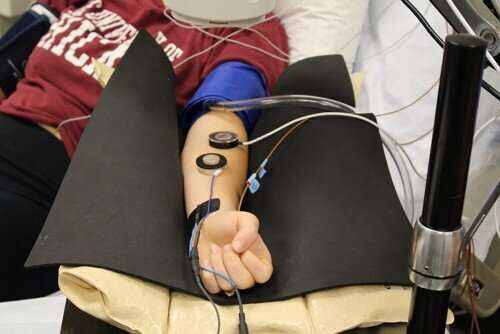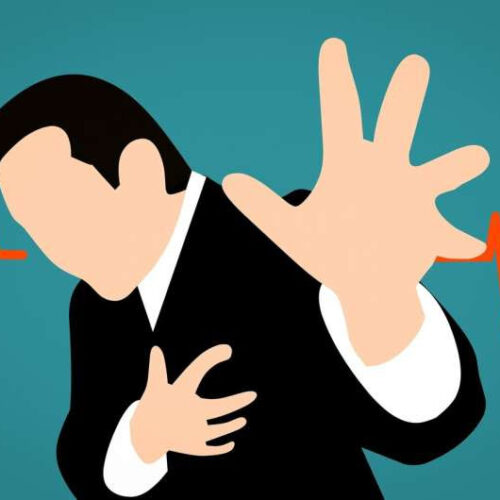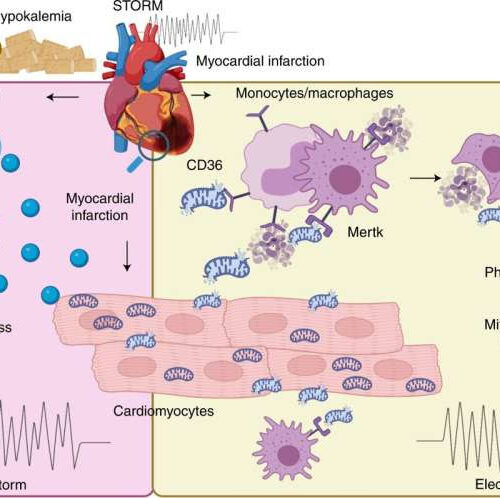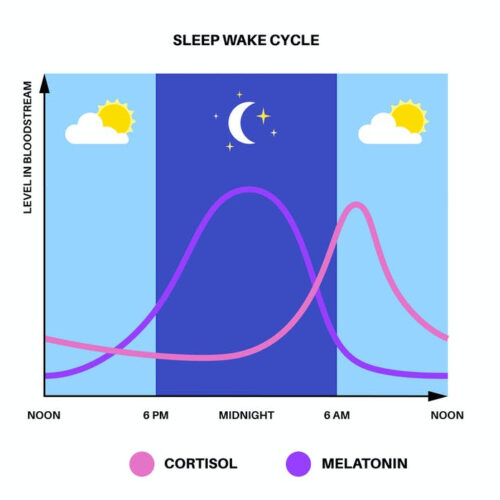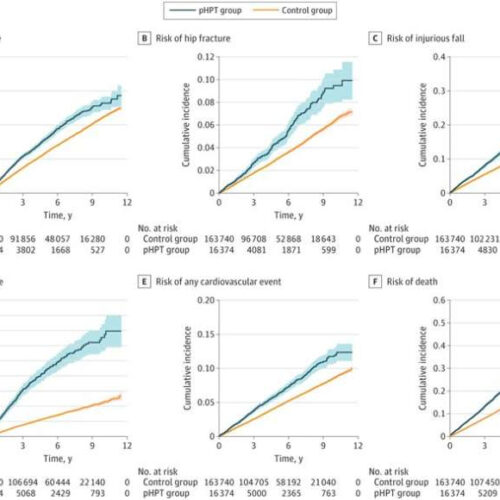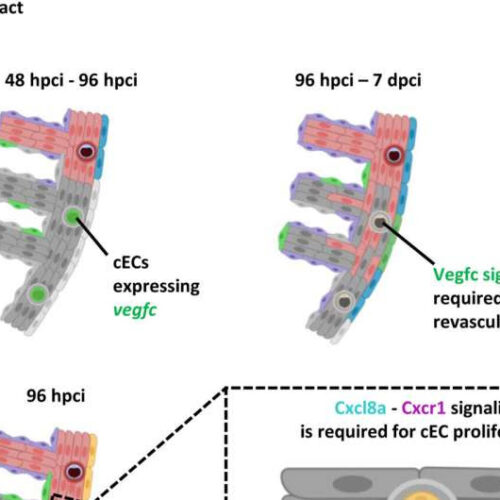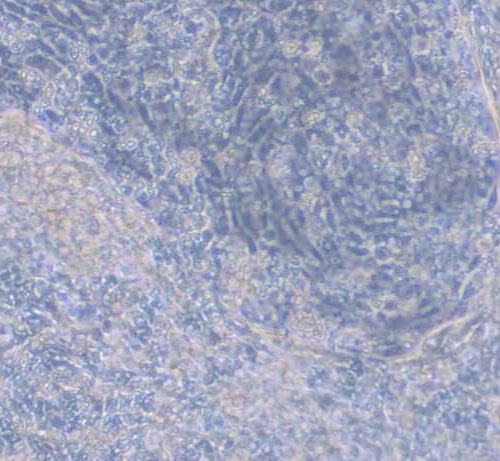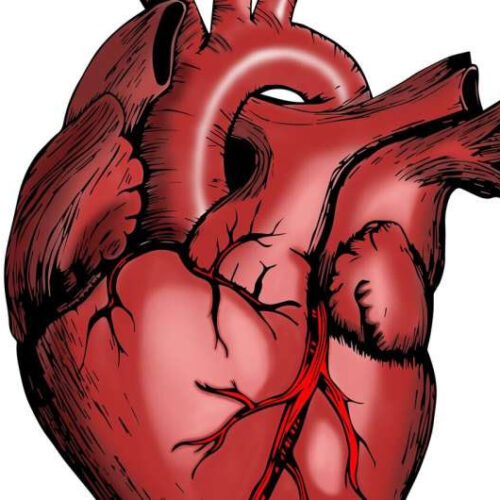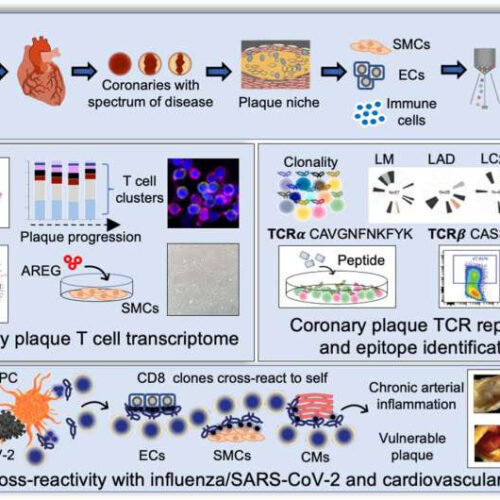by Iowa State University A study participant sits in James Lang’s lab at Iowa State during a microvascular test. Credit: Photo courtesy of James Lang/Iowa State University The majority of heart attacks and strokes in the world are ischemic, meaning a clot or buildup of plaque in an artery prevents oxygen-rich blood from reaching cells...
Tag: <span>heart attack</span>
How to tell the difference between a heart attack and panic attack
by Catherine S. Williams, American Heart Association Credit: Pixabay/CC0 Public Domain Chest pain, heart palpitations, shortness of breath, lightheadedness, nausea: Are you having a heart attack or a panic attack? Doctors and psychologists agree you shouldn’t take a chance on it not being a heart attack. That’s because the symptoms of a heart attack and...
Two different white blood cell types play opposing roles in affecting heartbeat irregularities after heart attack
by Michael Morrison, Massachusetts General Hospital Summary of findings. Credit: Nature Cardiovascular Research (2022). DOI: 10.1038/s44161-022-00094-w Patients with heart disease are at risk of experiencing a potentially lethal “electrical storm” involving recurrent episodes of a type of irregular heartbeat called ventricular tachycardia (VT). Electric shock therapy is used to treat VT following a heart attack, but unfortunately,...
Your body has an internal clock that dictates when you eat, sleep and might have a heart attack – all based on time of day
Anyone who has suffered from jet lag or struggled after turning the clock forward or back an hour for daylight saving time knows all about what researchers call your biological clock, or circadian rhythm – the “master pacemaker” that synchronizes how your body responds to the passing of one day to the next. This “clock” is...
Primary hyperparathyroidism linked to bone fracture, stroke and heart attack
by University of Gothenburg Cumulative incidences for patients with primary hyperparathyroidism (pHPT) and control individuals. The cumulative incidence of events for untreated pHPT and control groups was estimated using 1-minus Kaplan-Meier estimate of the corresponding survival function and presented with 95% CIs (indicated by shaded areas). Credit: JAMA Network Open (2022). DOI: 10.1001/jamanetworkopen.2022.15396 In the hormonal disorder...
New retinal examination can predict a heart attack
EUROPEAN SOCIETY OF HUMAN GENETICS Vienna, Austria: Combining information about the pattern of blood vessels in the retina with genetic data can enable accurate prediction of an individual’s risk of coronary artery disease (CAD) and its potentially fatal outcome, myocardial infarction (MI), commonly known as a heart attack. The discovery could lead to a simple screening...
Regenerating the heart after an attack
by University of Montreal Graphical abstract. Credit: Circulation Research (2022). DOI: 10.1161/circresaha.121.319929 Heart attacks are damaging, and the severity depends on how long blood flow has been interrupted; when temporarily deprived of oxygen, heart cells die. In addition, the heart can’t rebuild its own tissue, leading to its failure, the main cause of mortality and morbidity worldwide....
Injectable gel to repair damage after a heart attack
by Michael Addelman, University of Manchester Credit: University of Manchester University of Manchester Researchers have developed a new biodegradable gel that can help to improve the delivery of cells directly into the living heart and could form a new generation of treatments to repair damage caused by a heart attack. The research is being presented...
Cardiac progenitor cells generate healthy tissue after a heart attack
by Technical University Munich Credit: Pixabay/CC0 Public Domain Following a heart attack, the human body is incapable of repairing lost tissue due to the heart’s inability to generate new muscle. However, treatment with heart progenitor cells could result in the formation of functional heart cells at injured sites. This new therapeutic approach is introduced by...
Heart artery plaque immune cells cross-react with virus and vascular proteins, a potential cause of heart attack
by Amanda Chase, Stanford University Graphical abstract. Credit: Circulation Research (2022). DOI: 10.1161/CIRCRESAHA.121.320090 Researchers at the Stanford Cardiovascular Institute have discovered how viruses like influenza and SARS-CoV-2 as well as their associated vaccines may increase the risk of heart attack, stroke, heart inflammation, and other cardiovascular complications. “Although flu has long been associated with heart attack and...

